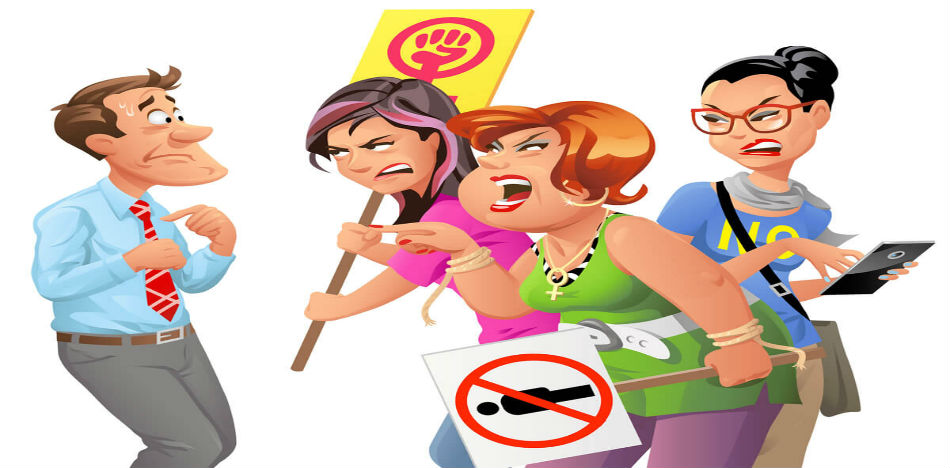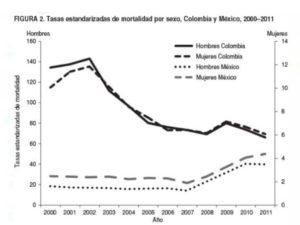
EspañolTo say that a woman’s life is worth more than a man’s sounds so awful that even those who defend laws against “femicide” refuse to recognize it.
However, in Colombia and other countries where “feminicide” has been established as a crime, that seems to be the case. A male murderer of a woman receives a tougher sentence than a woman who kills anybody.
Deciding the weight of a crime based on the sex of the victim is repulsive; it goes against the principle of equality before the law and is unethical. Why should the murderer pay more for being a man than for being a woman? Do we assume that men are evil by nature and must be punished more severely than murderous women?
I was with a friend recently when a news broadcast showed a case in which a woman had stabbed her husband. My friend’s reaction to the news was: “the man must have done something to deserve it.” My hypothesis is that in attempting to defend women and protect them from crimes that we all feel moved by, we have turned down a path of victimization of women and villainization of men.
Of course, crimes perpetrated by men against their partners should be punished immediately and efficiently, as should all crimes. And it is good that society is so fervently addressing the problem of women suffering from violence in a relationship. But the fact that we are moved by these cases does not mean we must demand that the law consider a woman’s life more valuable than a man’s.
Neither can we fall into a normalization of violence toward men with the mindset that they are all bad, or that if something happens to them it’s because they deserve it. Collective thinking is never good. It’s not fair that because a man was born with XY chromosomes, that makes his life worth less, nor should he be punished more severely if he commits a crime.
Some have responded to this argument by asking whether equality before the law matters. Does it matter that we add a few more years to a murderer’s sentence if that murderer is a man, if it means we can stop the scourge of violence against women?
I don’t think that ending the principle of equality before the law is a meaningless issue. It’s as bad to believe that a man is worthless as it is to be believe a woman is. It’s like saying that a black person is worth less than a white one. This attempt to end murders against women has not worked. In Latin America, supremely harsh legislation against “femicide” has been supported strongly by officials; however, the number of women murdered by men continues to increase.
Different studies show that violence against women is lower in high-income countries, not in countries where there are more laws against femicide. But violence against women is not only less, but violence in general is too. Statistics show violence against men and violence against women are practically the same, meaning that aggression against females is simply linked to the level of general violence.

If the problem were that men were sexist and hated women, murders committed against females would be different from male violence, but that’s simply not the case.
We must remember the importance of economic development in reducing violence against everyone. According to data provided by the United Nations, violence against women has to do with abusive romantic relationships begun at an early age, as well as economic dependence. In the most prosperous countries, women marry at an older age and have a higher labor market bonding rate. So if we really want to attack the causes, we cannot forget the importance of allowing economic development. Violence against women, as well as violence in general, is lower in the richest countries.
It is absurd to believe that men are bad and women are good and that, therefore, we must punish men more and put more value on the life of females. It simply means that violence and crime must be punished, regardless of whether a man or a woman commits it. Instead of creating new laws that put men at a disadvantage, let us focus on doing what is right and what is necessary: making justice effective.
 Versión Español
Versión Español












